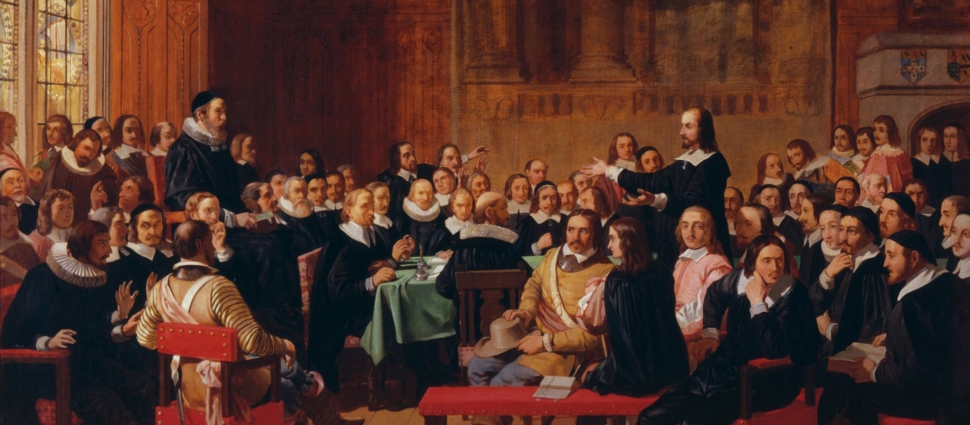Where are the Peaceable Presbyters?

A recent dust up on Twitter has me asking, “Where are all the peaceable presbyters?”
Several years ago, I had a personal Twitter account. It seemed like every PCA pastor was using it, and I felt like I was missing out on important debates and issues. I deleted my account after a fellow elder confronted me about something I posted. I appreciated this brother’s courage to call me out. We still disagreed about the substance of what I posted, but as I looked at it again, I saw how my tone was not inviting dialogue or seeking to persuade. Twitter was full of hot takes and quick thumbed retorts, and I, consciously or unconsciously, was replicating what I saw. It was not a space promoting dialogue. Instead of feeling engaged with the issues facing my denomination, I grew increasingly self-righteous and assumed many motives behind what others were posting. A few years later, I created a new Twitter account because I kept receiving links to Tweets and threads. I never interact just observe. My observations have caused me to read Paul's words to Timothy on the character traits of Elders, specifically that they be “peaceable” (NASB).
“Peaceable” in the NASB is translated as “not quarrelsome” in the ESV. Philip Towner in his commentary on the Pastoral Epistles writes, “This tendency betrays an inability to get along with and accept the views of others, and perhaps deeper personality flaws as well.” This inability to get along must have been a problem in the early church. Paul elsewhere encourages his readers that as “far as it depends on you, be at peace with all men” (Rom 12:18). Our connectional church means that we have to find ways to be at peace with one another. My fear is that we are not living up to the qualifications of our office as we engage with one another online.
Brothers, are we peaceable presbyters? If our church members read our Tweets, would they recognize us? Would they be shocked at the derision we lob at one another? Would they see Christ glorified in our hasty judgments of others motives? The ridicule and scorn we seem to revel in? Let’s be honest are we Tweeting to win a brother or slam him?
Many of us have followed the on going conversation of the “Moscow Mood” and of course have opinions on the matter. After reading the most recent PCA Twitter quarrel, I think we may need to take out the log in our eye before commenting on Moscow’s problems. A simple Tweet commending an overture received immediate and harsh backlash. A prominent Teaching Elder replied that the author of the Tweet should leave the PCA. Many more echoed that opinion and of course many stood up for the author of the Tweet. How are we to discuss anything of significance if our response to disagreement is not peaceable but pugnacious? Which is another quality Elders are not to display according to 1 Timothy 3:3.
We could all benefit from John Newton’s letter to a friend who was engaged in a controversy of his day, “Of all people who engage in controversy, we, who are called Calvinists, are most expressly bound by our own principles to the exercise of gentleness and moderation.” In our ordination vows we vow to “be zealous” to maintain the truths of the gospel and for the “peace and unity of the Church” (BCO 21.6). Further, we vow “to walk with exemplary piety before the flock” (BCO 21.7). Are we exhibiting a peaceable character on Social Media? Are we displaying moderation and Christlikeness when we engage in that space, especially with those we disagree with?
I am going to be bold and speak to the elder Elders. We suffered significant loses in the PCA last year. Particularly two strong leaders in Harry Reeder and Tim Keller. I do not ask God to send us the next Reeder or Keller, but the next men for this hour of the church. Who will rise up and lead us with conviction and compassion? Who will be peaceable enough to maintain the bonds of brotherhood within the PCA, especially as we continue to enter controversy after controversy? I have admired so many of you senior statesmen in the denomination from afar only to see your thumbs of clay after a fiery tweet. We need you at this moment to model the peaceableness Paul describes in 1 Tim 3:3. Lead us, correct us, guide us so that the bride of Christ may be kept pure and peace maintained among the brethren.
I do not dare speak as one who was innocent from such behavior. I started this off by confessing my own past sinfulness in this area. I implore my fellow elders to quit trying to solve denominational controversies in 280 words or less. Let us return to true dialogue and persuasion, taking the time to develop our thoughts and measure our responses. This could be in blogs (remember those), articles, and yes overtures which are meant to be debated in person in the church courts. Let’s go real old school and call or send emails when we have an issue or concern about an Elder. I am not saying we cannot disagree or should not have convictions worth disagreeing over. John Newton’s letter above was not meant to tell his friend not to engage in controversy but how to conduct himself in the midst of controversy. I know of few people who have been persuaded to another point of view through insult and ridicule (Pr. 18:19). Let us instead think of others as more significant than ourselves (Phil 2:3) and desire to live, as much as it depends on us, at peace with all men (Rom 12:18).




